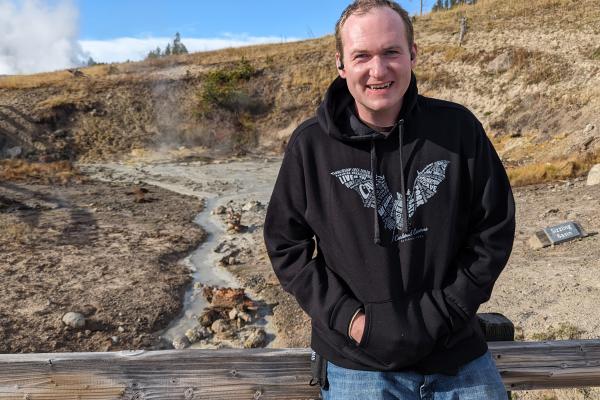

Title: Malleable light: From Single Atom Computing to Superspectroscopy
Gerard McCaul, Tulane University
HYBRID MTG: Physics Research Building 1080, Smith Seminar Room
Friday, November 17 2023 from 11:30am - 1:00pm

ABSTRACT
In this talk I will explore recent theoretical work that exploit non-linear optical processes to achieve a variety of results. First, I present a framework for controlling the observables of a general correlated electron system driven by an incident laser field. This reveals a flexibility inherent to non-linear light-matter interactions, where the driving of a quantum system can be tailored such that it emits light as if it were an arbitrary different system. This optical alchemy in turn enables new avenues of investigation, including include ultrafast artificial intelligence, chemical mixture characterization, and broadband ENZ materials.
In addition to these applications, I will also discuss a newly developed spectroscopic technique that does not rely on optical nonlinearities, but the phenomenon of superoscillations, where a spatial or temporal region of a wave locally oscillates at a greater frequency than is present in its Fourier decomposition. By combining four THz laser fields generated by periodically poled Lithium Niobate, we are able to predict and observe THz optical superoscillations in the temporal domain for the first time. The ability to generate superoscillations in this manner has potential application in a wide range of fields, where (for instance) it may contribute to the experimental realization of the complex pulses required for the aforementioned optical alchemy, as well as the generation of attosecond pulses without the need for nonlinear processes.
Finally, as a first application for the synthesised superoscillations, I will outline a method for off-resonance sensing termed “superspectroscopy.” This employs the generated superoscillations to obtain an observed enhancement of almost an order of magnitude in the spectroscopic sensitivity to materials whose resonance lies outside the range of the component waveform frequencies. "
BIO
Gerard McCaul is a WM Keck postdoctoral fellow at Tulane university, New Orleans, where he has worked since 2019. His research interests include non-linear optics, open quantum systems, quantum control, and any combination of these topics.
Watch a Recording of the Event Here.
